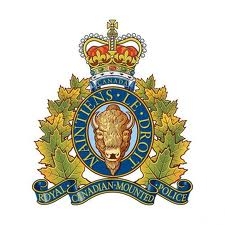by Susan Johnston | Sep 6, 2014 | Uncategorized |
 When I trained as a coach and was working towards certification, over a decade ago, a lively topic of conversation amongst some of my fellow learners was ATPCTCWDHAC (all those people calling themselves coaches who don’t have a clue). “Anybody who has a life thinks they can be a life coach,” we moaned. “Everyone without a job sets up as a business coach,” we wailed.
When I trained as a coach and was working towards certification, over a decade ago, a lively topic of conversation amongst some of my fellow learners was ATPCTCWDHAC (all those people calling themselves coaches who don’t have a clue). “Anybody who has a life thinks they can be a life coach,” we moaned. “Everyone without a job sets up as a business coach,” we wailed.
As someone who had a life but didn’t have a work permit, to some degree, I fit the profile of the clueless imposter. Still, to me, it seemed that coaching without training was a bit like driving without knowing the rules of the road – possible, but a really bad idea.
It’s true that anyone can call themselves a coach. There’s no requirement to be trained or certified. Some untrained people are fine coaches, just as some with training can be ineffective. No amount of instruction guarantees good performance and no certification can replace experience, empathy and effective communication. On the other hand, no amount of passion, interpersonal skill or drive can replace sound knowledge and time-tested approaches to coaching conversations. Coaching needs a foundation.
(more…)
by Susan Johnston | Jan 31, 2014 | Uncategorized |
 If you’ve ever said or heard, “That’s not what I was trying to do,” an intention check might have helped your interaction.
If you’ve ever said or heard, “That’s not what I was trying to do,” an intention check might have helped your interaction.
It’s a three step process.
Step 1
This kata starts, like so many things in communication, with self-awareness. The first step is to know what you are trying to achieve. If your internal thoughts are muddy, there’s no way your communication will be clear. Ask yourself, “What do I really want here?” Know your goal for the interaction.
Sometimes you’re just curious. Sometimes you want the other person to do something. Sometimes you need them to know something. Or you want to recognize something they’ve done. But knowing your purpose is the first step to clear communication.
You might also want to check that your intentions are honourable. Working with a client on this recently, she realized, when she checked her intentions that, what she was about to say was really a form of retaliation for something a colleague had said the previous day. When she examined what she really wanted she moved to what was good for the team and the project.
Step 2
Once you’re clear on your intention, the next step is to share it. People can’t read your mind. What happens if people don’t have the facts about something? Yeah, they make stuff up.
(more…)
by Susan Johnston | Aug 21, 2013 | Uncategorized |
Once in a while, if you are very lucky, you get a gigantic dose of brain candy. That was my experience at Agile 2013, a five-day gathering of smart and thoughtful individuals working to find new ways to work, particularly in the realm of software development.
This was an enormous conference, twice as large as anything I’d been to and twice as long. There were more than 1,700 people registered for five days of non-stop idea sharing. In every time slot, there were over a dozen sessions to choose from. That didn’t count the unscheduled ‘open jam’ sessions and lively discussions during the breaks.
 And don’t forget the parties. We were, after all, in Nashville. Music City. Honky Tonk Heaven.
And don’t forget the parties. We were, after all, in Nashville. Music City. Honky Tonk Heaven.
It took place in a hotel that could pass for an amusement park. The Gaylord Opryland Conference Center is a massive biodome-like structure with islands, rivers, jungles and other distractions. Rooms are in at least five distinct buildings connected by meandering paths on several levels. It’s one thing to be lost in a new city. But to be lost in your own hotel? Every five minutes? Our hotel map would prove to be as important as our room keys.
This could have been a ticket to overwhelm. Instead, it was a most exquisite learning experience. Inspired by the Agile Manifesto, this is a community that spends its days promoting collaboration, pairing discipline with creativity, trying to create more people-centric work situations, and learning.
So what did I take away from this adventure that might be useful for readers of this blog? (more…)
by Susan Johnston | Jul 14, 2013 | Uncategorized |
 “She gets up and pours herself a strong one & stares out at the stars up in the sky – then takes a taxi because she doesn’t drive impaired.”
“She gets up and pours herself a strong one & stares out at the stars up in the sky – then takes a taxi because she doesn’t drive impaired.”
That’s just one of many tweets posted by the Royal Canadian Mounted Police in Newfoundland (@RCMPNL) on July 13, when The Eagles were headlining at the annual Salmon Festival. An outdoor party featuring five big name bands is bound to attract an exuberant and boisterous crowd – some of whom might have their wits dipped in alcohol.
Rather than get all preachy-teachy on the subject of driving safely, the Mounties took their message – and a sense of humour – to Twitter. They cleverly wrapped their message in lyrics from Eagles hits. Here are just a few.
- “Already Gone” to see the Eagles at the Salmon Festival? Traffic is heavy. Take your time. RCMP members are patrolling the TCH. [Trans Canada Highway]
- Keeping some “Fast Company” on your way to see The Eagles at Salmon Festival? RCMP members will be watching for speeders. Take your time.
- It’s going to be a “Heartache Tonight” if the RCMP pulls you over for impaired driving at Salmon Festival. Designate a driver.
- “You can’t hide your lyin’ eyes” If you’re driving impaired at Salmon Festival the RCMP will find you.
- Jail is no “Hotel California” Enjoying Salmon Festival? Designate a driver, take a taxi or walk. Don’t drink& drive. (more…)
by Susan Johnston | Jul 3, 2013 | Uncategorized |
 When my professional communicator friends ask what I’m up to, I need to explain – non-techie to non-techie – what ‘agile’ means. I tell a story that goes something like this:
When my professional communicator friends ask what I’m up to, I need to explain – non-techie to non-techie – what ‘agile’ means. I tell a story that goes something like this:
“Being agile is about business sustainability. It’s an approach to work that lets an organization respond to changes in its environment – customer needs, market fluctuations, new technology, competitor moves, resource constraints, whatever.”
Communicators get that. We pay attention to the business environment. We’re also familiar with change, since most of what we advise on or write about has something to do with something new.
It’s about change
“Since every part of the business uses computers, change can’t happen without systems changes. Even great communication can’t compensate for crappy tools. But developing systems can be slow and expensive and, sometimes, by the time you’re done, the target has moved and more changes are needed.”
Heads nod. Everyone’s witnessed this. (more…)
by Susan Johnston | Jun 27, 2013 | Uncategorized |
 A long time ago, in a galaxy far away, I was a television reporter. The radio people, with whom we shared a newsroom, called us “vidiots.” Were we insulted? No way! We wore the title with pride.
A long time ago, in a galaxy far away, I was a television reporter. The radio people, with whom we shared a newsroom, called us “vidiots.” Were we insulted? No way! We wore the title with pride.
As someone in the business of face-to-face communication, I know I should be using video to share ideas. But memories of a world where smart professionals looked after shooting and editiing make me reluctant to wade into the land of do-it-yourself TV. So I was delighted to be invited to Video Space Camp, a full day of learning, brought to us by Vidyard. (It’s an amazing company I think of as “YouTube for real business.”)
There’s no way to capture a full day’s learning in a blog post, but here are the highlights, as seen through my lens. (more…)
 When I trained as a coach and was working towards certification, over a decade ago, a lively topic of conversation amongst some of my fellow learners was ATPCTCWDHAC (all those people calling themselves coaches who don’t have a clue). “Anybody who has a life thinks they can be a life coach,” we moaned. “Everyone without a job sets up as a business coach,” we wailed.
When I trained as a coach and was working towards certification, over a decade ago, a lively topic of conversation amongst some of my fellow learners was ATPCTCWDHAC (all those people calling themselves coaches who don’t have a clue). “Anybody who has a life thinks they can be a life coach,” we moaned. “Everyone without a job sets up as a business coach,” we wailed.




